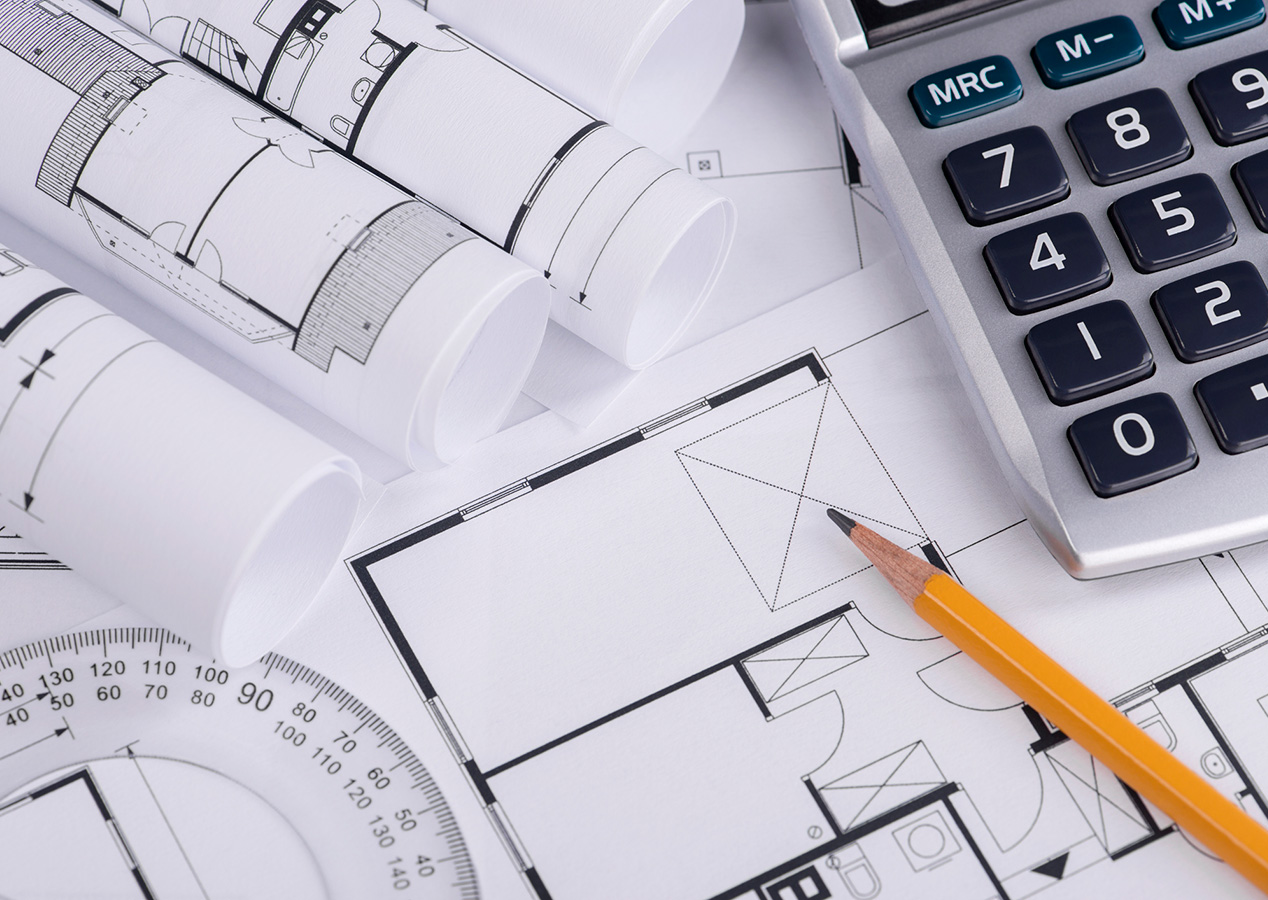How to create a reliable budget for a commercial and industrial construction project

Creating a reliable, comprehensive budget is an extremely important step in the execution of a successful commercial industrial construction project.
A well-planned budget allows builders and project owners/clients to account and prepare for owner modifications, unexpected design or structural problems, unanticipated adverse weather conditions, delayed completion dates and other events that result in hidden costs.
Planning and preparing a construction budget is a huge undertaking. Even the best estimators and project managers can struggle with setting precise expectations for a project given the many unforeseen factors that may affect it. While they can’t anticipate every possible change in circumstances, contractors can endeavor to make their budgets as tight and reliable as possible.
What Is a Construction Budget?
A construction budget is an estimate of the money required to take a construction project from initiation to closure, including all associated costs and expenses that are accrued during the building process. Budgets attempt to present an accurate forecast of all the costs and expenses of a construction project as well as unexpected costs.
Construction project managers typically use professional estimators and quotes from subcontractors and suppliers to develop their budgets.
Types of Costs in a Budget
There are several types of costs that are usually included in a construction budget, among them costs for design, materials and insurance, as well as utilities and facilities to support the construction process.
Construction costs can be divided into five categories: hard costs, soft costs, general conditions, site costs and unforeseen costs.
Hard Costs
Hard costs are the costs involved in the physical construction of a project. They include costs for materials, equipment and labor. Examples of hard costs are lumber, steel, nails, drywall, paint, doors and windows, HVAC, lifts and cranes, electrical equipment, plumbing and wages for construction workers.
Soft Costs
Soft costs usually are incurred before or after the construction phase of the project. They include design fees, taxes, insurance, accounting, LEED certifications, bonds and legal fees.
General Conditions
General conditions are indirect costs that typically fall into three categories: preconstruction costs, construction organization costs and project operation costs. They include temporary utilities, supervision labor, trailer rental, project management fees and administration expenses.

Site Costs
Site costs include land costs, surveys, demolition and environmental compliance measures.
Unforeseen Costs
These are unexpected costs that arise during the construction process.
What to Include in a Construction Budget
Different construction projects require different budgets, but in general a construction budget should include the following elements:
Property: lot price, real estate fees, financing and taxes.
Materials: all of the materials involved in the construction of the project, such as steel, lumber, cement, stone, bricks, sand, glass, roofing, insulation, flooring, plants, electrical wiring and plumbing pipes.
Equipment and tools: rental, delivery and fuel costs for all of the equipment and tools involved in the construction of the project, including excavators, bulldozers, lifts, backhoe loaders, haulers, concrete mixers, saws, wrenches, drills and shovels.
Professional services: consulting, architectural and design, permitting, surveying, testing, inspections, accounting, banking, real estate, waste disposal, and electrical, mechanical and civil engineering fees.
Labor: payment for employees, tradespeople, subcontractors, equipment operators and other human resources, including hourly wages, workers’ compensation, vacation and sick time.
Project management: office space rental, utilities, office supplies, phone service, internet connection and project management software.

Insurance and bonds: builders risk insurance, general liability, errors and omissions insurance, pollution liability, commercial auto and truck insurance, workers’ compensation; bid bonds, performance bonds, payment bonds, maintenance bonds.
Permits and fees: local jurisdiction permits, system development charges (SDCs).
Utilities and taxes: electrical, gas, water and sewer cost; local and state taxes.
Contingency: unforeseen costs and unexpected expenses associated with changes in scope, design or material upgrades, machinery malfunctions, excavating bad soil, accidents and acts of God, usually 3% to 10% of the total budget.
Profit and overhead: profit for doing the project and operating expenses associated with running a business.
Planning the Budget
The first step in creating a comprehensive budget is for the contractor and client/project owner to meet to discuss the project’s specifics.
The contractor must obtain as many specifics as possible from the owner to ensure that the estimated construction costs will be close to the finalized budget. The owner should have an achievable vision for the property that includes its primary use, general design ideas, desired completion date and a rough cost tolerance.
When planning a construction budget, many estimators and project managers prefer to divide expenses between hard and soft costs, which commonly account for 70% and 30% of the budget, respectively.
Things to Avoid When Creating a Budget
Following are some common but critical mistakes project managers can make when creating a construction budget.
- Basing the budget on inaccurate estimates.
- Preparing a budget without having a definitive project schedule.
- Focusing only on the bottom line and accepting the lowest bids, which may negatively affect the quality of the work.
- Underestimating unforeseen costs, which ideally should account for 5% to 10% of the total budget.
Final Thoughts
Meticulous cost estimating and budgeting set the stage for a successful construction project. Inadequate budgeting can lead to errors, omissions, delays, cost overruns and even incompletion. With proper planning, attention to detail and accurate estimates, contractors are better able to forecast the cost of construction projects.
